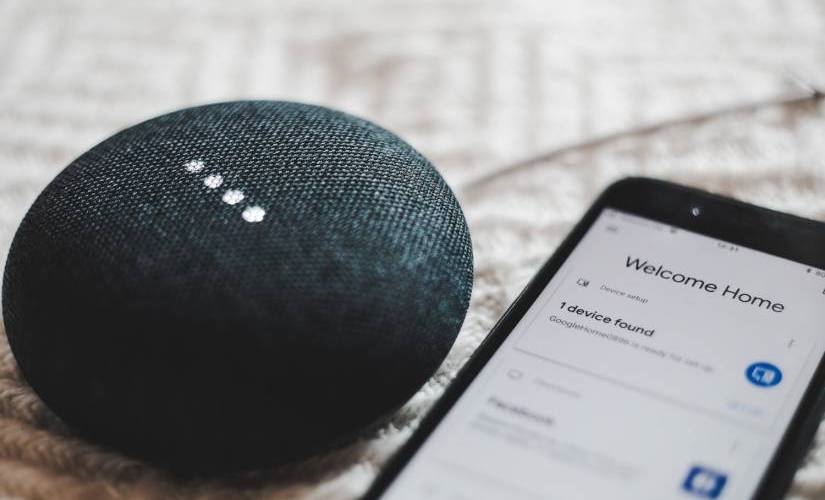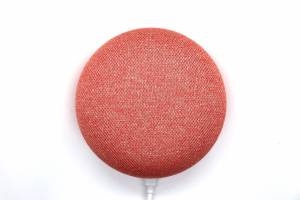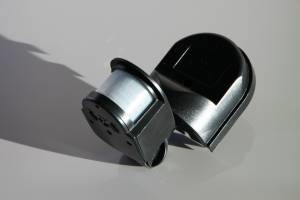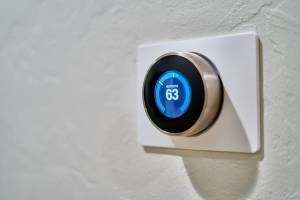Benefits of Smart Devices for People Living with Disabilities
Benefits of Smart Devices for People Living with Disabilities

Thanks to technology, life has become incredibly convenient. We can buy stuff online, talk to family and friends across the country and the globe, and control numerous smart devices through our tablet or smartphone. Those taking advantage of the Internet of things include the world’s largest minority, namely, individuals with disabilities.
In addition to the many other technologies of our digital world, disabled individuals benefit from the use of smart devices. It’s a lot like how the general public gets to enjoy the benefits of website accessibility. When websites are made accessible, it improves the user experience for all. If you’re not sure about getting on this technological trend, let us give you the reasons why you should.
What are smart home devices?

A smart home is a residence that features devices interconnected with each other via the Internet that will enable the owner to remotely monitor and control them. Smart home devices include appliances, lights, thermostats, doorbells, door locks, cameras, speakers, etc.
How does a device qualify as a smart home device? Technically, any product inside your home that can be plugged into your home network and commanded by voice, remote control, tablet, or smartphone is considered a smart device.
How does smart home technology help people with disabilities?
Having your devices “talk” to each other has obviously transformed the lives of many people, but what has it done for those who are living with disabilities? How do these smart home devices help improve their daily lives?
A smart home system gives control to people with disabilities. These devices can help them enjoy independent living while easing the worries of their loved ones. They’re giving power to this community while providing them with cost savings. Smart devices are considerably less expensive than single-purpose assistive devices.

How do smart home systems do all of that? One good example is a smart door sensor that is connected to smart speakers. Blind people can use this smart home technology to let them know if someone has entered or left the house. Another good example is the Amazon Echo program.
This personal assistant device can listen to your voice commands and control Bluetooth-enabled devices and appliances. People with limited physical mobility no longer need to get up to change the thermostat or to get in touch with a loved one. Opening curtains or blinds can be difficult for some people with restricted mobility. Having a smart device enables them to perform this task with ease.
Robotic vacuum cleaners, smoke alarms, ovens, and even coffee makers are just some of the other things that can be controlled using smartphones or even just spoken commands. As such, people living with disabilities are given the “ability” to perform tasks that they used to ask others to perform for them. It increases accessibility without requiring them to make changes to how their home is designed or built. Simply put, this type of technology provides them with “home control,” which can make a huge difference in how they can live their everyday life.
Best devices to make your home smarter
Door sensors
If you’re investing in a smart device, security should be your top priority. What better way to make your house secure than to get a door sensor? A door sensor sends you an alert whenever someone tries to enter your home. You’ll never have to worry about leaving your home unattended again because you’ll know immediately if your door opens.
For people living with disabilities such as dementia, loved ones can feel much safer with a door sensor installed. It eases their mind because they’ll be able to know right away if their family member leaves home without them.
Electronic door locks
A smart lock enables you to open and lock your doors remotely. It ensures you’re never locked out of your home—something that can easily happen if you forget your key or the code into your house.
It also allows you to provide people temporary access to your homes whenever you want it. In fact, you can even dictate the number of times and days someone can go in and out of your home. With a smart lock, you’re not just able to provide access. You’re also able to monitor access.
Motion sensors

Motion sensors, as we all know, can detect movement in an area where there shouldn’t be any. These play an integral role in any security system. It can alert you when your children are entering an area in the home (like the basement) when they shouldn’t be; It will let you know if your teen is breaking curfew or going out while you’re asleep. Also, It will alert you when intruders are going into your home.
With a smart home system, you can set up your motion sensor to trigger other connected devices such as lights or alarms. These devices can even be used to help you save money. For example, you can set the device to turn off lights whenever there is no motion detected in a room for a certain period.
Smart lights
Smart lighting is more than just being able to turn your lights on and off remotely. It enables you to control lighting levels allowing you to change a bulb’s brightness to suit your needs and/or the time of day. It also allows you to save energy. As we’ve already mentioned, you can connect motion sensors with your smart lighting allowing you to turn off the lights in unoccupied rooms. In short, you’re able to conserve electricity as well as your personal energy.
Voice assistants
Voice assistant technology has transformed the lives of everyone. Commanded through voice, it is a software that performs as a digital assistant providing users with a service through an application. A good example of voice assistants includes Amazon’s Alexa and Google Assistant.
With a voice assistant, you can control various devices through one specific app or device, such as the Amazon Alexa app, Amazon Echo, or Google Nest. Among other things, you can use it to call loved ones, search Google, watch a movie, create a shopping list, set reminders, and alarms, play music, lock the door, and change the thermostat. No hands required.
Video doorbells
A video doorbell is just as the name suggests. Your doorbell has a camera that records video. Why should you install it? Well, this smart device is a great criminal deterrent. Seeing a camera recording their actions just outside your door can make them think twice about breaking into your home. You can record everyone that goes to your door, which provides you with valuable video footage that can serve as evidence of a crime or blackmail material for a loved one.
Another benefit to this device is that it allows you to watch over your Amazon deliveries while you’re out of the home. It will also enable you to screen your visitors during those days when you’d rather be left alone.
Leak sensors
As you’ve probably already guessed by its name, this smart device alerts you whenever it detects a leak. Traditional devices will sound an alarm, which only works when you’re at home and can hear it. With a leak sensor such as a smart water leak detector, you get the alert on your smartphone.
Why would you need this? Prevention is better than a cure. Water damage is hard to detect until it has become a visible problem. That could cost you hundreds, if not thousands, of dollars. Some people with disabilities might not have the ability to search for a leak. With a smart leak sensor installed in areas where leaks are likely to occur, they’ll get notified if and where it happens.
Thermostats

Some people like to keep their homes warm; others prefer it cooler. A smart thermostat allows you to set the temperature inside your home just the way you want it. Why is this important?
Well, with a smart thermostat, you can lower the heat while you’re out of the house to save on costs and then warm it up when you’re on your way home. For people living with disabilities, being able to remotely control the temperature of their home is a convenience that makes life easier.
Smart home devices are easy to install and setup.
Smart home devices can be intimidating to some of us. It sounds too much like science fiction, but the future is now. People don’t have to be afraid of this technology because it’s easy to install and set up. Most smart devices are designed to be user-friendly. Moreover, for most of them, you only need to install an app and plug the device into your home network.
Advantages of using smart home technologies
The advantages of a smart home are too numerous to cover in just a short article. For this reason, we’ll only cover five, but these are the big ones.
Home assistant
House chores certainly have never been this easy to accomplish. You can use your smart home devices to preheat your oven, get your coffee going, or have the carpet vacuumed while you’re miles away. Some smart home devices can even let you know when your food has cooked to perfection on the grill and is ready to serve. All of that is done without lifting more than a finger.
Smart heating/cooling
With a smart thermostat, you can make sure your home is warm and ready to welcome you in its arms as soon as you get home. Adjust your water temperature so that you’re ready for a hot shower as soon as you step through the door. The cooling and heating of your home is easily achieved through your smartphone.
Save energy and money.
Smart home devices enable you to regulate how much energy is spent in your home. You can lower the heat while you’re out of the house by only turning it up when you’re about to get home. You can turn off lights in unoccupied rooms or dim them down to keep energy costs low. Some applications can even help you monitor how much energy your household is using and notifies you of ways you can save energy, and when you save energy, you save money.
Health tracking

If you want to keep an eye on your health or the health of someone you love, smart health trackers can do that for you. It can check your stress level, calories, heart rate, pulse, and even your sleep patterns.
Safety
The world is a dangerous place. There’s no doubt about that. Fortunately, that doesn’t mean that you shouldn’t enjoy a worry-free life. With smart home technology, you can keep an eye on your home whether you’re inside it or far away. If there’s an intruder when you’re at the office or a water leak while you’re on vacation, you can get notified immediately instead of when you get back home hours, if not days/weeks, later.
Smart home technology can even let you allow people access to your home if necessary while you’re not in town. Moreover, it’ll give you peace of mind knowing that you’re able to lock the door even when you’re already at the airport waiting for your flight.
Conclusion:
There’s no question that smart home devices have made life easier for many consumers. For people living with disabilities, they’ve made life more normal. These devices have given them more control over how they will live their lives, enabling them to accomplish more on their own. Disabled people no longer need to rely on assistive technologies that usually only serve one purpose and cost a lot of money.
With smart home devices, their lives are better and their pockets fuller.
The post Benefits of Smart Devices for People Living with Disabilities appeared first on ReadWrite.
(27)

